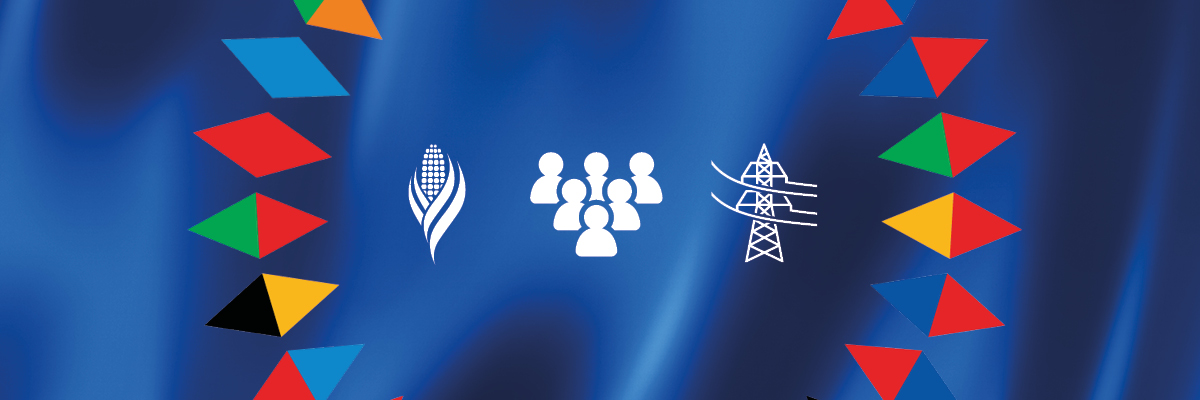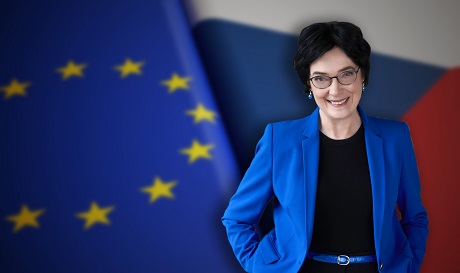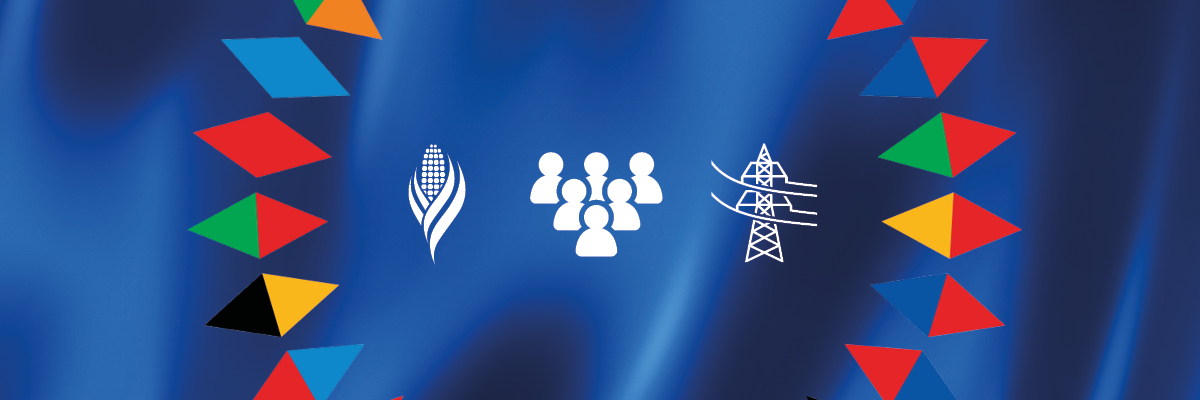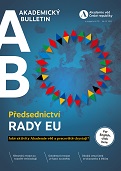
Involvement of the CAS
On 1 July 2022, the Czech Republic took over the Presidency of the Council of the European Union. Its main tasks include maintaining a united front in the approach to the war in Ukraine and in solving the energy crisis concerning the 27 EU member states. The Czech Academy of Sciences along with its institutes are also involved in the Czech EU Presidency.
The Czech Academy of Sciences (CAS) and its institutes are developing three main areas of interest in the context of the Czech EU Presidency. This is in response to current challenges facing Europe today – specifically, food safety including NGTs (new genomic techniques), a resilient society, and low-emission energy. The military aggression of Russia in Ukraine as well as the deepening energy crisis and threat to democratic principles illustrate the main challenges the Czech Republic will have to deal with in the following months.
The three priorities of the Czech Presidency which the CAS is involved with build on the programmes of the CAS Strategy AV21. “There is a need to ensure food security, but also sustainable energy – for a society that is to be self-confident, self-sufficient, and competitive, resilient to the crises that are yet to come,” Eva Zažímalová, President of the CAS, explained the unifying vision. These areas of interest respond to current challenges in line with the vision of the Strategy AV21 to implement “top research in the public interest”.
David Honys, a member of the Academy Council of the CAS, who coordinates the activities focusing on food safety and NGTs, expands on Eva Zažímalová’s idea: “We’ve prepared a compact package of interconnected topics, their unifying theme being the sustainable development of Europe and the security of its citizens during these turbulent times”. We’ve also touched upon some of these issues, for instance, in our web articles The Academy Assembly discussed the research priorities of the Czech Presidency of the EU and Nuclear and renewable energy the way out of the current energy crisis.

Eva Zažímalová, President of the CAS (CC)
The first research area, food safety and the use of new genome-editing techniques in plant breeding, responds to the anticipated challenges of food shortages and climate change. “At the same time, it builds on recent discoveries in molecular genetics that have led to advances in targeted genome editing of agricultural crops,” adds Jaroslav Doležel from the Institute of Experimental Botany of the CAS, Coordinator of the CAS Strategy AV21 Foods for the Future research programme.
For a long time, European researchers have been calling for the EU to allow the option of using new methods of crop cultivation via CRISPR technology. According to Jaroslav Doležel, these ground-breaking genome-editing methods are well-researched and safe: “Given their simplicity, targeting, precision, relatively low cost, and flexibility, they represent a desirable and necessary tool for EU agriculture.”
The second area of interest is low-emission and safe energy solutions, reacting to one of the most pressing issues in Europe today. The war in Ukraine is driving up energy prices and showing how vulnerable Europe is in terms of resource availability and dependence on Russian natural gas. For this reason, there is mounting pressure to diversify the sources in the energy mix, something that is also being addressed by researchers from several CAS institutes. “Current research will not provide us with enough energy for this winter. But it should ensure that we will not find ourselves in a similar situation in the future,” explains Radomír Pánek, director of the Institute of Plasma Physics of the CAS. That’s because research into new sources of energy and nuclear energy is a long-term and investment-intensive endeavour.
CAS researchers, for example, are significantly involved in the development of an energy source that utilises thermonuclear fusion. As Pánek adds, this energy source represents a major challenge for humanity, but also a great opportunity to obtain a commercially affordable, almost inexhaustible, low-emission and safe energy source within 30 years: “I sincerely hope that current events and the energy crisis will lead to greater support for these areas of research.”
The third priority is social resilience (or Resilient Society). It is based on the Strategy AV21 programme of the same name, coordinated by the Institute of Philosophy of the CAS. Resilience refers to the ability of a system to cope successfully, or even grow, when faced with a crisis, an unexpected or threatening emergency, and/or a change in living conditions. “Such a crisis for society has been the COVID-19 pandemic and, in recent months, the war in Ukraine as well,” says Tomáš Kostelecký from the Academy Council of the CAS.
To find out which activities the CAS institutes are planning, read the interviews in the summer issue of the AB / Academic bulletin of the CAS with David Honys and Jiří Plešek from the Academy Council and Alice Koubová from the Institute of Philosophy of the CAS, who coordinate the three topics of focus:
The Czech Presidency of the Council of the EU commenced on 1 July 2022 and will last until the end of the year. Sweden will take over the baton of EU leadership from the Czech Republic. Up-to-date information can be found on the official website of the Czech Presidency of the Council of the European Union.
Prepared by: Luděk Svoboda and Jan Hanáček, Division of External Relations, CAO of the CAS
Translated by: Tereza Novická, Division of External Relations, CAO of the CAS;
Photo: Ondřej Pýcha; Shutterstock
 The text and photographs labelled CC are released for use under the Creative Commons licence.
The text and photographs labelled CC are released for use under the Creative Commons licence.

